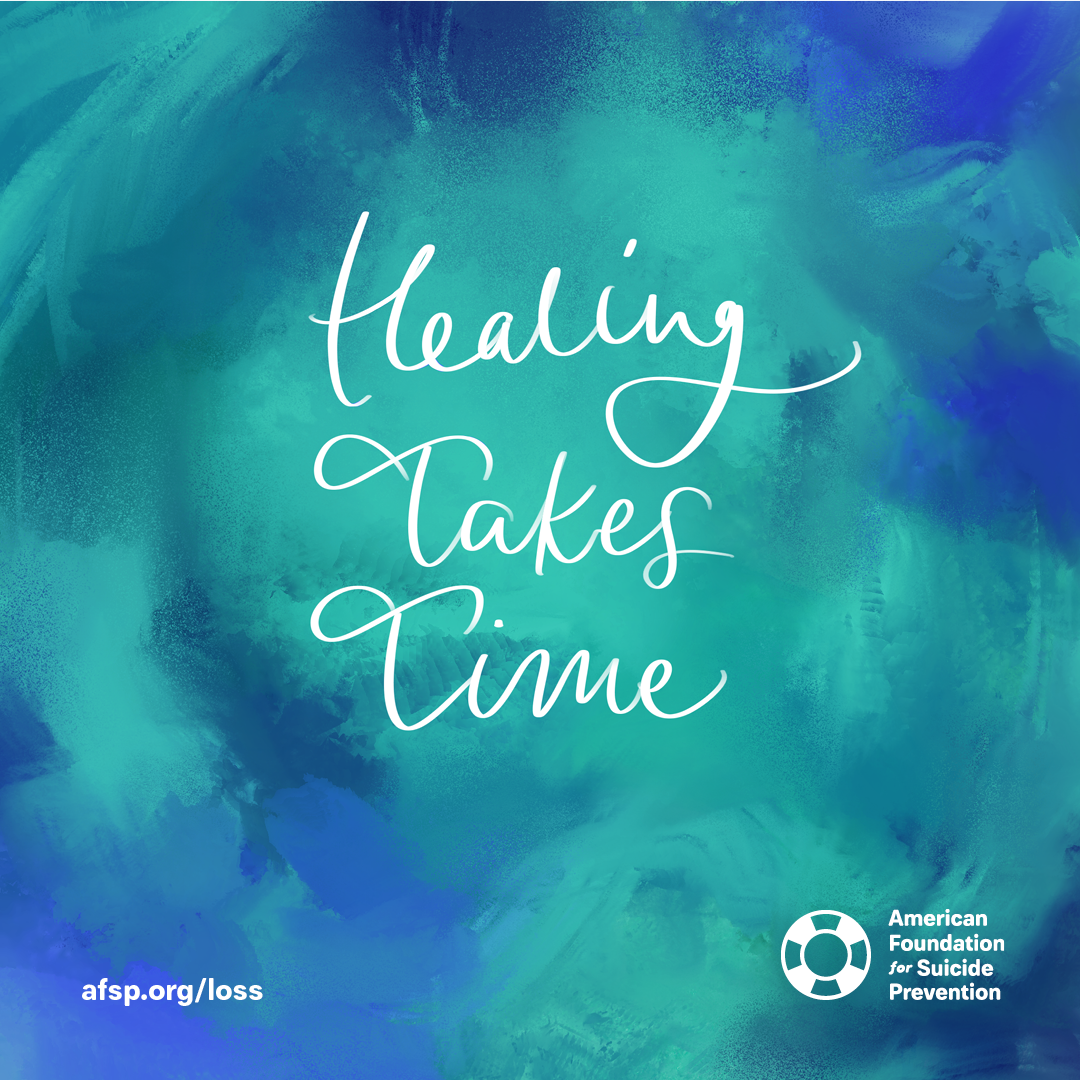“The grief of suicide loss is like carrying a 200-pound weight over your head. Over time, the weight stays the same, but our backs get stronger.” ~ Author Unknown
On December 7, 2004, we lost my brother Carson to suicide. In the beginning, the grief felt unbearable -- heavy, confusing, and unrelenting. I couldn’t imagine ever feeling steady again. But over time, something shifted. We found others who had walked this same path of loss and survival. Together, we learned that while the weight of grief never disappears, it becomes easier to bear when it’s shared.
That’s what International Survivors of Suicide Loss Day is all about -- finding strength through connection, compassion, and community. It’s a day when people around the world gather to remember their loved ones, to speak their names aloud, and to help one another carry the weight a little more lightly.
Over the years, I’ve learned that the pain doesn’t vanish; it transforms. The weight is still there, but I’ve grown stronger, steadier, and more compassionate toward others walking this same road. That’s the essence of International Survivors of Suicide Loss Day, a day when people around the world come together to remember, to heal, and to find connection in the shared experience of surviving the unimaginable.
The Complexities of Suicide Grief
It’s both grief and trauma.
Suicide loss shatters our sense of safety and meaning. Many of us replay the events leading up to the loss and struggle with intrusive questions that have no satisfying answers. Frank Campbell, the grandfather of healing after suicide loss, describes this as falling into the “canyon of why.”
It’s nonlinear.
There’s no “getting over” suicide loss. Grief ebbs and flows, sometimes unexpectedly. Anniversaries, songs, or stories can reopen wounds years later. Healing means learning to ride those waves rather than fight them.
It’s isolating.
Even the people who care most may not know what to say. Silence deepens our loneliness. What helps most is acknowledgment. A simple “I’m so sorry this happened” or “Tell me about them” opens the door to connection.
What Helps in Healing
Tell your story…when you’re ready.
Sharing your loved one’s story keeps their memory alive and helps break the isolation. Every time we speak their name and share their life story, we continue the bond we have with them.
Find your people.
Grief is heavy when carried alone. Peer support groups, counseling, and community gatherings can offer understanding that family and friends sometimes can’t.
Care for your body and spirit.
Suicide grief lives in our bodies and in the very deepest parts of who we are. As Sarah Gaer describes in her work on Soul Exhaustion, this kind of weariness is a depletion of our emotional and spiritual reserves. Restoring ourselves requires more than sleep; it calls for gentleness, nourishment, and moments of stillness.
Give yourself grace.
There’s no timeline. Healing isn’t linear or tidy. Some days you’ll cry in the grocery store; others you’ll laugh at an old memory. Both are sacred.
More on International Survivors of Suicide Loss Day
November 22, 2025
Each year, on the Saturday before Thanksgiving, communities across the globe gather for International Survivors of Suicide Loss Day, organized by the American Foundation for Suicide Prevention (AFSP).
These gatherings -- both in person and virtual -- offer a place to share stories, honor loved ones, and connect with others who “get it.” Participants often watch a short film together, talk about their experiences, and leave with resources and renewed hope.
You can find or host an event near you at afsp.org/SurvivorDay. Whether you attend for the first time or have been returning for years, you’ll find a space where compassion and understanding replace silence and stigma.
If this time of year feels heavy, remember you don’t have to carry the weight alone. Help is available 24/7 through the 988 Suicide and Crisis Lifeline (call or text 988) or find a suicide loss survivor support group near you: https://afsp.org/find-a-support-group/.



